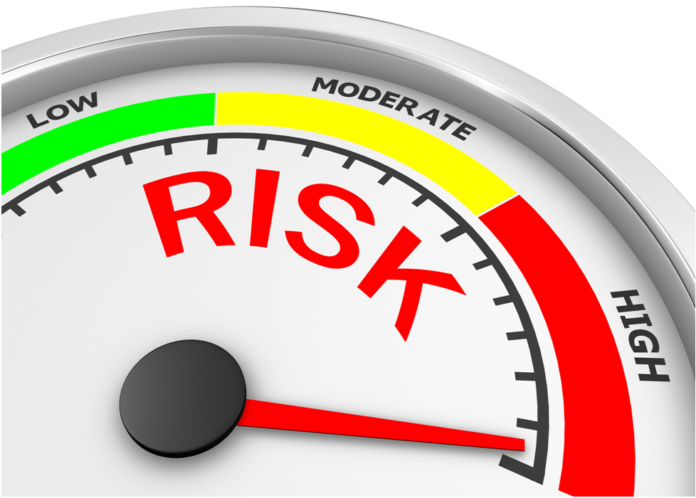What is a high-risk industry? This is a question that many business owners ask themselves when they are trying to decide what type of company they want to start. The answer isn’t always clear, because the term can be interpreted differently.
In general, high-risk industries are those that banks and other financial institutions deem as being unstable and risky. This means that if you are operating a business in one of these industries, it can be more challenging to get funding from traditional sources.
In this article, we will cover what high-risk industries are, some examples of businesses that fall into this category, and how they can affect your company.
So why does this matter? Read on to find out!
High Risk Industries: The Various Types
There are a few different ways to categorize high-risk industries. One way is to consider the product or service the business provides. For example, companies that deal with sensitive information, such as personal data or financial records, are often regarded as high risk.
This is because there is an increased risk of data breaches and cyber-attacks. If a customer’s information is compromised, it can damage the company’s reputation and lead to costly fines.
Another way to classify high-risk industries is by looking at the business model. For instance, companies that rely heavily on debt are often considered high-risk.
This is because if the business cannot make its payments, the lenders could demand immediate repayment, leading to the company’s collapse.
Finally, some industries are considered high risk because they are subject to strict regulation. For example, the food and beverage industry is tightly regulated by the government to ensure that products are safe for consumption.
If a company does not adhere to these regulations, it can face severe penalties, which could put it out of business.
Why do High-Risk Industries Matter to Businesses?
Now that we’ve covered what high-risk industries are, you might be wondering why they matter to businesses. After all, isn’t every company at risk of failure?
The answer is yes and no. While it’s true that all businesses face some level of risk, those in high-risk industries are often more susceptible to financial instability. These businesses usually have difficulty securing funding from traditional sources, such as banks.
This can make it difficult for companies in high-risk industries to grow and scale their operations. In some cases, it can even lead to the business’s demise.
So if you’re thinking about starting a company in a high-risk industry, it’s essential to be aware of the challenges you may face. However, this doesn’t mean you shouldn’t pursue your business idea.
With careful planning and execution, your company can still be successful, even in a high-risk industry.
What Do Banks Think of High-Risk Industries?
As we mentioned, one of the biggest challenges companies in high-risk industries face is securing funding from traditional sources.
Banks are often reluctant to lend money to businesses in these industries because they view them as being too risky.
This is because banks are in the business of lending money, and they want to be sure they will get their investment back. With high-risk industries, there is often a higher chance that the company will default on its loan, which could lead to enormous losses for the bank.
For this reason, banks typically charge higher interest rates for loans to businesses in high-risk industries. This can make it even more difficult for these companies to succeed.
So if you’re thinking, “I want to start a business in a high-risk industry,” it’s essential to know that you may have difficulty securing funding from traditional sources. However, this doesn’t mean you shouldn’t pursue your business idea.
There are other ways to finance your company, such as through venture capital or private equity. With careful planning and execution, your company can still be successful, even in a high-risk industry. Bankcard services can help your business get funding.
Tips for Running A Business In A High-Risk Industry
If you’re determined to start a business in a high-risk industry, there are some things you can do to increase your chances of success. Here are a few tips:
1. Do Your Research
Before starting your company, it’s essential to do your research and understand the risks involved. This way, you can be prepared for any challenges that may come up. Also, be sure to have a solid business plan in place. This will help you attract investors and secure funding.
2. Find the Right Partners
One of the keys to success in any business is finding the right partners. This is especially true in high-risk industries. It’s essential to find partners who shares your vision and who you can rely on.
3. Have A Solid Business Plan
When applying for funding, make sure to have a solid business plan that outlines your company’s growth strategy. This will show investors that you’re serious about your business and that you have a roadmap for success.
4. Be Prepared for Challenge
Remember that running a business in a high-risk industry comes with its own set of challenges. Be prepared for bumps in the road, and don’t be afraid to ask for help when needed.
With careful planning and execution, your company can still be successful, even in a high-risk industry.
High Risk Doesn’t Mean Low Success Rate
Despite the challenges, there are many companies in high risk industries that are successful. With careful planning and execution, your company can also be successful.
So if you’re considering starting a business in a high-risk industry, don’t be discouraged. With the right approach, your company can thrive.
If you’d like to learn more about businesses in general, check out the related content on the sidebar.






























